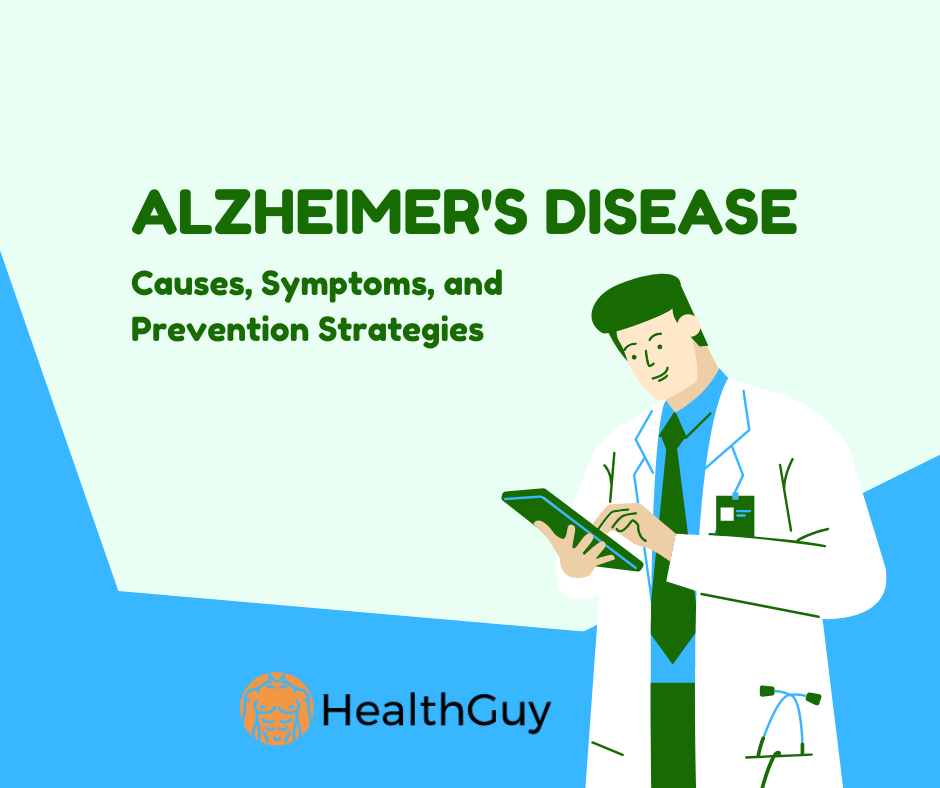
Alzheimer’s Disease: Causes, Symptoms, and Prevention Strategies
Alzheimer’s disease is a progressive brain disorder that affects memory, thinking, and behaviour. It is the most common cause of dementia, which is a decline in cognitive function and ability to perform daily activities. The disease usually develops slowly and gradually worsens over time, affecting the ability to remember recent events, communicate, and perform basic tasks.
Causes: The exact cause of Alzheimer’s disease is still unknown, but researchers believe that a combination of genetic, environmental, and lifestyle factors may contribute to the development of the disease. Some of the known risk factors include age, family history, head injury, high blood pressure, high cholesterol, and type 2 diabetes.
Symptoms: The symptoms of Alzheimer’s disease can vary from person to person, but they generally include:
- Memory loss, especially recent events
- Difficulty with language and communication
- Problems with reasoning and judgment
- Confusion and disorientation
- Changes in mood and behaviour
- Difficulty with basic tasks, such as getting dressed or preparing meals
In the early stages of the disease, a person may have trouble remembering recent events or conversations, but they can still perform basic daily activities. As the disease progresses, they may experience more severe memory loss, difficulty with language and communication, and changes in behaviour and personality.
Diagnosis: Diagnosing Alzheimer’s disease can be challenging, as the symptoms can be similar to those of other conditions. There is no single test that can definitively diagnose the disease, but doctors will usually perform a series of tests and evaluations to rule out other possible causes of the symptoms. These may include:
- Physical and neurological exams
- Blood tests
- Brain imaging tests, such as MRI or CT scans
- Neuropsychological testing
Treatment: Currently, there is no cure for Alzheimer’s disease, and treatments focus on managing symptoms and improving quality of life. Medications can help to slow down the progression of the disease and manage symptoms such as memory loss, confusion, and agitation. Some of the medications used to treat Alzheimer’s disease include:
- Cholinesterase inhibitors
- Memantine
- Antidepressants or antipsychotics
Non-medical interventions, such as cognitive therapy and lifestyle changes, may also be recommended to help manage symptoms and improve overall well-being.
Prevention: While there is no guaranteed way to prevent Alzheimer’s disease, there are several lifestyle factors that may reduce the risk of developing the disease. These include:
- Maintaining a healthy diet and weight
- Getting regular exercise
- Staying mentally and socially active
- Managing chronic conditions such as high blood pressure and diabetes
Conclusion: Alzheimer’s disease is a devastating condition that affects millions of people around the world. While there is currently no cure, there are treatments available that can help manage symptoms and improve quality of life. By taking steps to reduce risk factors and maintain a healthy lifestyle, we can all work towards preventing the development of this disease and improving our overall cognitive health.
